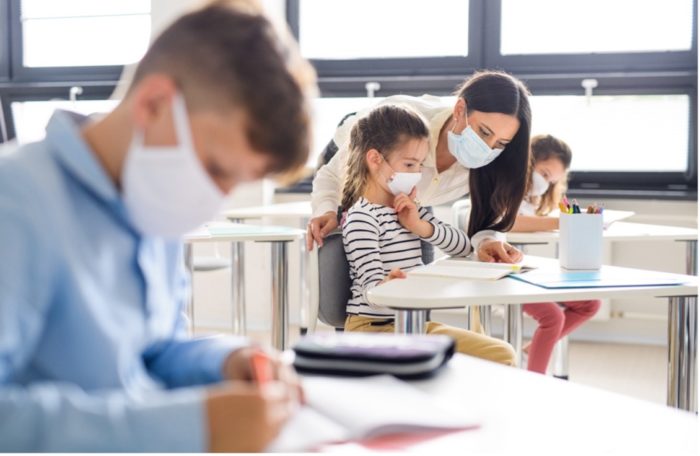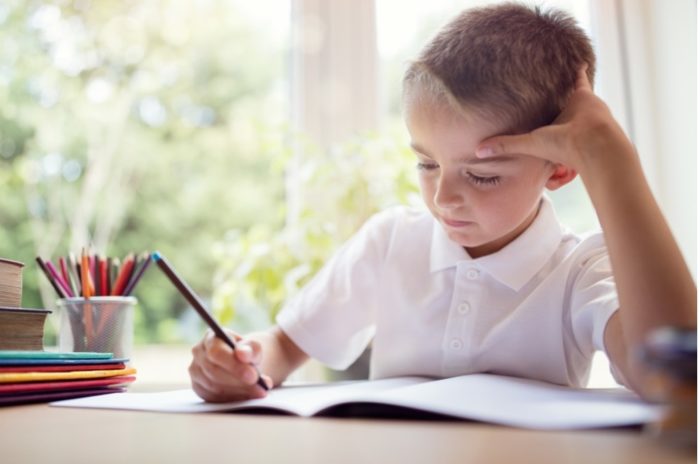The impact of COVID-19 created new educational inequalities for children

The ICKLE project focuses on ten primary schools in Leeds to investigate the impact of disruption to schooling during the COVID-19 pandemic. The project explores children’s progress in key foundation skills during the transition from reception to Year 1, and schools’ and families’ experiences of providing support for learning.
The findings will provide evidence to inform policymakers and third-sector organisations as they develop strategies to mitigate the impacts of lockdown, including addressing inequalities, and will help schools decide how to allocate catch-up support, as disruption to schools continues.
The first round of data collection and analysis has been completed and is reported here. A second round of data collection has just been completed, and findings from the analysis of these data will be published in due course.
Inequalities in academic attainment
Children in reception are learning fundamental skills which lay the foundation for later success. However, learning during lockdown varied considerably, and placed children on different developmental trajectories. In some cases, disruption to schooling may have exacerbated existing inequalities in academic attainment, but also created new ones. Whilst some children maintained or even accelerated their progress, others may have stalled progress or lost previously learned skills.
The research team includes Dr Hannah Nash, Dr Paula Clarke, Dr Catherine Davies, Dr Matt Homer, Dr Peter Hart, and Dr Rachel Mathieson at the University of Leeds. Their expertise is across various Schools, including Psychology, Education, and Languages, Cultures and Societies.
Principal Investigator, Dr Hannah Nash, from the School of Psychology, commented:
The ICKLE project offers insight into a key age group of four- to five-year-olds, where development is particularly important during the transition between reception and Year 1. It specifically explores a demographic of children in Leeds; however, since Leeds is a large and diverse city the findings are comparable to the national context.
How was data collected?
The research team collected data over 12 months, to investigate the progress of children starting Year 1 in September 2020, but also to tell a comprehensive story by looking additionally at school provision for, and families’ experiences of, home learning during the national COVID-19 lockdowns, rather than focusing on one area in isolation. Pupil progress data was collected by ten primary schools from three time points: before the pandemic in March 2020, in early Autumn 2020 when the children had entered Year 1, and finally in Spring 2021, as the children approach the end of Year 1.
The project considered key factors related to school, home and children themselves which may affect development. These included home learning provision offered by schools; whether parents had resources and time to assist with home learning; and whether children remained in school due to being considered vulnerable or the children of key workers. Three types of data were collected to track children’s progress, which included remote learning provision, home learning experiences, and pupil attainment.
A teacher from each school provided contextual data via an online survey about remote learning provision, which gathered information about the resources offered by schools, along with the types and frequency of support provided and home-school communication.
To help the researchers understand the home learning experience, 220 parents or carers of children who were learning at home during the Spring 2020 lockdown completed an online survey, providing information on access to physical resources, learning routines, and the availability of parental supervision.
Finally, schools provided pupil attainment data from March 2020 and Autumn 2020 for 454 children. Each pupil’s progress was rated in relation to ten goals from four areas of the Early Years Foundation Stage Profile (EYFSP).

ICKLE project findings
Three summary reports were published in July 2021 to share findings from the first round of the ICKLE project data collection.
The first report, Leeds schools' remote education provision for reception children during the Spring 2020 lockdown, considered the resources and guidance provided by schools to caregivers to support home learning. The findings indicated various approaches were used across schools and Early Years Foundation Stage (EYFS) curriculum areas. Interestingly, more resources were supplied for traditional academic subjects, such as Literacy and Mathematics, than for Communication and Language or Personal, social and emotional development. Worksheets were also more common for traditional subjects, whilst online resources were used most frequently for supporting Phonics. There were very few live or pre-recorded lessons, and most schools used online reading books. Children who remained in school usually received the same resources as those who were at home.
The second report, Caregiver experiences of facilitating home learning for reception children during the Spring 2020 lockdown, identified substantial variations in several aspects of home learning. Challenging family circumstances, such as having to work, study, or care simultaneously for children of different ages, including babies, significantly impacted on caregivers’ capacity to engage in home learning. Whilst parents and caregivers were a resource, the support they could provide varied, which affects home learning and creates new inequalities affecting children’s progress.
In 80% of the families who responded to the survey, an adult was available to supervise home learning. However, 20% reported some part-time availability, the largest proportion of this group being in the lowest socioeconomic status (SES) group within the sample. This highlighted the negative impact of known inequalities, such as level of disadvantage, in addition to new inequalities such as the availability of adult supervision. Around half the parents of children participating in the project completed the home learning experience survey, and most of these children were supervised daily to learn across the curriculum. However, these findings may not be the case for families who did not complete the survey.
Motivation was a key factor impacting on home learning. Caregivers reported difficulties in motivating their children to engage in home learning. Another factor was access to learning technology. Low SES families were disproportionately represented in the group of families within the sample with no access to a laptop or a printer.
The final report, Progress of reception children during the Spring 2020 lockdown in Early Years Foundation Stage curriculum areas, explored children’s progress during the first national lockdown. Children in reception made less progress than expected across all four EYFSP areas investigated, but particularly in Literacy and Mathematics. The findings identified a range of child and home learning factors associated with children’s progress, including socioeconomic status and SEND, but the impact of children’s additional needs goes beyond formal identification of SEND to encompass children who would usually receive extra classroom support.
In a sample of 450 reception-aged children, 16% made no progress between Spring and Autumn 2020 in key curriculum areas, whilst 45% only made limited progress. Less progress was associated with known factors, such as special educational needs and household deprivation, but was also linked to fewer resources provided by schools and less engagement with home learning. School disruptions created new inequalities in young children’s learning, redefining the concept of disadvantaged children.
These findings from the first round of data collection were included in a report which was submitted as evidence to the UK Parliament Public Accounts Committee inquiry into the impact of COVID-19 on Education.
More information about the project and its findings is available in Dr Rachel Mathieson’s blogs on the ICKLE project website.
